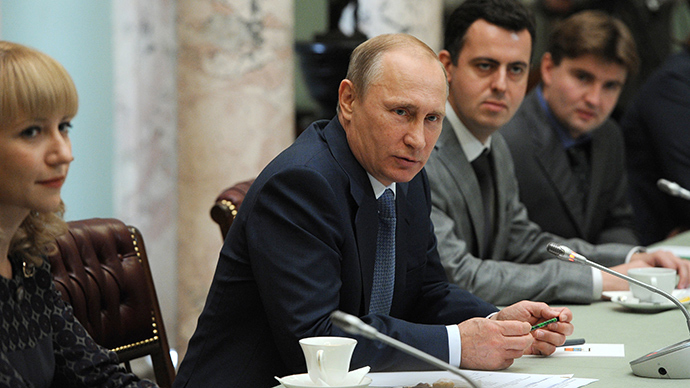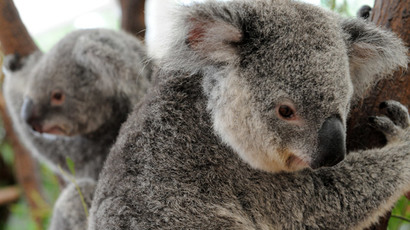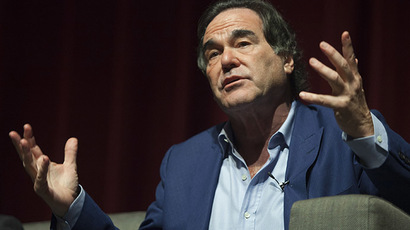‘Crimea cradle of Russian Christianity’: Key quotes from Putin’s meeting with historians

Among the many historic ties Russia has with the newly returned Crimea is the role it played in the adoption of Christianity, President Vladimir Putin told young historians.
The meeting in Moscow was dedicated to professional challenges faced by Russian historians and the role they play in consolidating Russian society. One of the suggestions discussed was to write a comprehensive book on the history of the disputed Crimean peninsula as a contingency against possible attempts to diminish Russia’s role in it.
Putin said that historically “there is not a single weakness for us there. Start with the fact that for Russians – and I mean the ethnically Russian part of our multinational people, the Christian Russian people – is a sacred place. In Crimea in Chersonesus Prince Vladimir [Sviatoslavich the Great] was baptized, and then he converted Russia. The original baptismal font of Russia is there.”
The role that historians play in shaping a country’s perception of itself and its image abroad was the focus of the discussion. They are the ones responsible for providing facts and reasoning, when somebody wants to put a spin on historical events for some political gains today, Putin said.
“Once we convince our people, the majority of the people, that our position is right, objective and just, that it helps the society, the nation and the people, we’ll have millions and millions of supporters,” he said.
As complex as historical science is, there is a natural trend for different parties to interpret facts of the past in favor of ideas or institutions they like. This is especially true for more recent events and painful events, like the rise of Adolf Hitler in Germany and World War II that sealed the fate on his rule.
Putin argued that the dealings Moscow had with Hitler’s Berlin and its taking advantage of the rising tensions did not stand out against the background of other European nations’ actions.
“Those were the methods of international politics. The Soviet Union signed a non-aggression pact with Germany. They say: that’s so bad. What’s bad if Soviet Union didn’t want to go to war?” he said.
“Knowing that the war was inevitable and expecting that it would happen, the Soviet Union absolutely needed time to modernize its army. Every month mattered. The number of ‘Katyusha’ multiple rocket launchers or T-34 tanks in the Soviet Army was measured in units, while it needed thousands of them,” he added.

He added that Poland, which holds a grudge against Russia for sending troops simultaneously with Germany and partitioning Poland – a result of a secret protocol of the German-Soviet treaty that divided Eastern Europe into spheres of influence – should recall how Warsaw previously profited from Nazi aggression.
“They accuse Soviet Union of dividing Poland. Well, what did Poland do when the Germans entered Czechoslovakia? It took part of Czechoslovakia. That’s what it did. And then they got a hockey puck in their own goal,” Putin said.
He also recalled the infamous comments by then-British Prime Minister Neville Chamberlain, who promised “peace for our time” to Britons after signing the Munich Agreement, a deal under which Germany, Italy, France and Britain agreed that the Nazis would attack Czechoslovakia with impunity.
The historians and Putin also discussed the Bolshevik Revolution of 1917, the anniversary of which was marked Friday November 7 (October 25 under the old, Tsarist-era calendar), and the subsequent civil war in Russia. The Russian president said the Bolsheviks’ propaganda – part of an exhibition he visited prior to the meeting – was better than that of their rivals, but in fact they “conned society.”
“You know [the Bolshevik slogans] yourselves. Land to the peasants, factories to the workers, peace to the people. They didn’t bring peace, because the civil war started, and they took the factories and land, nationalized them, so it was a pure 100 percent con,” Putin said. “But at least they did it with elegance.”














